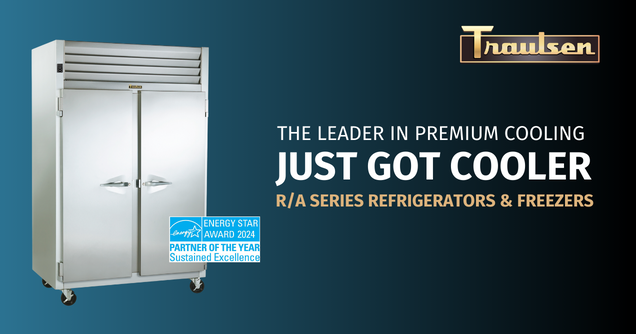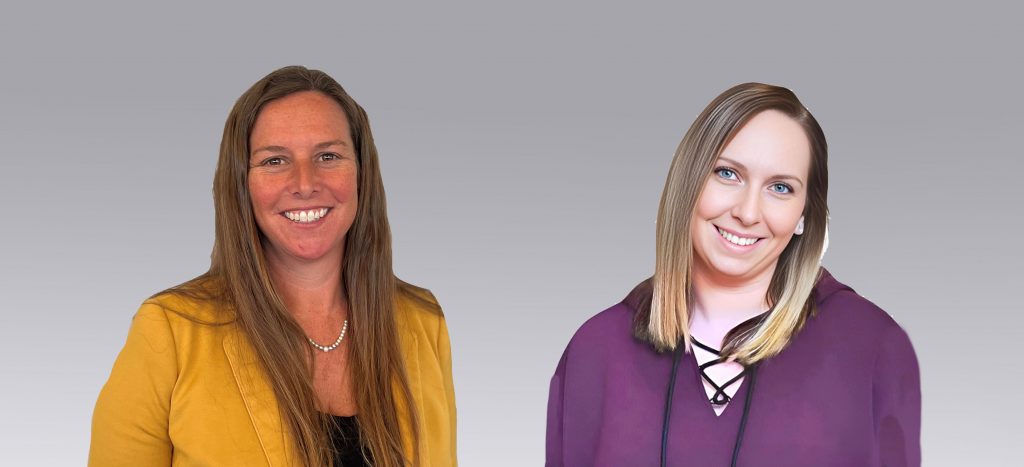
Piper Products, Inc. has grown from a small company into a significant industry player servicing multiple industries in a wide variety of food preparation, serving and custom millwork products.
Led by co-owners Tony and Jennifer Sweeney, the company – purchased by Tony’s father Roger in the late 1980s, and from whom the couple bought it in 2007 – has systematically developed into an innovative and invaluable resource for its growing portfolio of customers.
The Wausau, Wisconsin-based company has expanded its customer base, market share and diverse product line even as it has evolved its manufacturing and management systems and expertise. Central to its mission is its emphasis on innovation and service, plus heavy management attention on both respecting and empowering its people.
Piper Products was founded in Cudahy, Wisconsin, in 1960. As a small company catering to the needs of local, independently owned bakeries and grocery stores, it supplied bread racks and food transport cabinets.
Today, it is a premier manufacturer specializing in cafeteria and buffet serving systems. Its extensive product line ranges from racks and cabinets, heating-and-holding cabinets, dispensing equipment, steam tables, BBQ machines, ovens, proofers, cook-and-hold-ovens, underbar, cafeteria serving lines, custom mill work and salad bars. It services both the commercial and institutional foodservice markets, as well as supermarkets and convenience stores.
Beginning as a production supervisor, Tony Sweeney, who serves as company president, has steadily gained manufacturing knowledge, industry expertise, and both leadership and entrepreneurial skills. His reservoir of knowledge has helped Piper continue to hone its manufacturing techniques, significantly improving gross margin and generating the revenue necessary to build a highly specialized sales team, which in turn has fueled still greater growth.
Together with his wife Jennifer, who serves as CFO, Sweeney has driven revenues up by 79% in six years while also increasing product gross margins. More impressive is that Piper’s market share and profits grew significantly during one of the country’s most challenging economic periods.
Respecting Piper’s people
From the outset, the Sweeneys have known that Piper’s most important asset is its people, which is why management works to empower them. Management and staff alike know that cross training not only improves efficiency but also raises the value of the employees themselves. As Sweeney attests, “We have people who can flex from the oven line into the cafeteria line to handle that uptick in business. Before, you were a punch-press operator, or you were assembler number nine, or you were a welder, and that’s all you did. Now we have people who can not only work in the fab department where they are running a brake press and welding, but also are certified in refrigeration so they can move up and down the line wherever the work goes.”
Indeed, Piper has built a cadre of team members who can work in many of its products categories, resulting in higher pay rates for those cross trained employees. The inevitable result is a plant that runs lean and efficient, and an improved retention rate and greater job satisfaction because those employees can earn more.
The strategy is born of a fundamental respect for Piper’s people and the work they do. As Sweeney is quick to point out, “Jenny and I aren’t out there making these ovens and this equipment; they are.” The team concept is in play at all times. “You’ve got to communicate the expectations to the employees, and most people really care. You might go home, turn on the TV, listen to the radio and feel like you have no control over your life. But you know when you come to work here at Piper today, you can truly make a difference.”
Sweeney reflects that moving the company from Cudahy to Wausau in 1996 supplied a rare opportunity to craft a new culture. “It took a while for people to really feel that way, but now I feel that people here are very confident that they can make a difference. They are the ones making us grow.”
Successful companies respond directly and quickly to their customers, he explains, and so does Piper. “What do you see at any company whose products you buy? Well, the first thing you see is, when you call, do they pick up the phone? Do they return your phone call? Are you getting a timely estimate? If you do have a problem with your product, are you getting it resolved? Those are what I call the basics of what you focus on. I think if you can continue to practice and polish the stone and get a little better every day in all the different departments, you can do what we did. We have a nice little company here.”
A dependable resource
Part of Piper’s success formula has been the acquisition of outside technologies and product lines that have given it access to additional markets. In 2000, the company secured assets from Southern Equipment Company and licensed its technology, resulting in a 46% jump in sales. Next, Piper purchased the Chef System oven line to fill a niche with equipment for cooking meats. In 2006 Sweeney bought Servolift Eastern Corp., which raised Piper’s sales by 103% in the first year. R&D Fixtures was another addition, a move that has strengthened Piper in the supermarket and convenience store markets and is proving the catalyst for manufacturing wood laminate products.
In 2017, it also acquired LaCrosse Cooler, manufacturers of stainless-steel under- bar equipment, mixing stations, drop-ins, and the Stowaway portable bar. The company’s transition to a direct sales force in 2010 further bolstered sales and gross margins. Says Sweeney, “We are just trying to be a resource for those guys, to give them what ultimately they are going to need to get that customer back in their stores.”
Indeed, Piper has flourished by making itself a dependable resource for its customer. As Sweeney notes, “Our tagline is that we are the food-focused equipment company.” In fact, its staff includes four culinary-degree chefs who are also product specialists and can work with a school cafeteria or institutional program. “We look at our products as being weapons in their arsenal. We work with the end-user to find out what they are trying to accomplish, and then use the products we make to help make their dream and their plans come true.”
Innovation has always been a priority. For example, plant crews used to take two to three hours to set up a press, “bang out as many single parts as you possibly could” and store them in inventory, Sweeney recalls. “You would be making all those parts that maybe you didn’t even have orders for. Not only are you buying metal you don’t need to buy right now, but you are spending on the labor that you don’t need to spend for right now – and you are keeping all the stuff in inventory that you don’t necessarily need to have.”
Today, however, “if you have an order for one, you make one,” he continues. “You had to eliminate all the setup out the back so you could respond to your customers faster. That is where we have really been focusing.”
The company has also made green manufacturing a priority. “We are continually striving to exceed Department of Energy and Energy Star requirements and they all have Piper’s Food Safe certification [which is trademarked by Piper].”
Staying ahead
An ongoing task is to monitor and respond to the ways that Piper’s various market segments continue to change even as the lines between them blur. “The convenience stores and supermarkets are going after that fast- food business,” Sweeney observes. “Five or 10 years ago it was really clear what the chains were doing and what the supermarkets were doing. Now, you see a big overlap.”
Sweeney says he’s “not trying to grow by leaps and bounds.” He is not looking for expansion opportunities outside the US, nor does he have any additional acquisitions in the offing, though he says more deals remain a possibility. “We are always looking for that other product that could really help us be more of a resource for our customers. If we found a company that has a unique product that we could fit into our arsenal, and that could help our customers, sure, we would look at it.”
Sweeney admits he gets “a little choked up” as he looks back on his career. Starting out in the factory, he recalls “getting my hands dirty, the smell of metal, learning the differences between stainless and other kinds of steel and watching the working guy out on the plant floor.”
From his father, Roger, founder of the company, he learned, among other things, that “you have to know the numbers. You have to have, for instance, an accurate bill of materials for a product. Even though we were a small company, we never thought that just having cash in your drawer meant you were successful. There is a whole big step other than that, and it starts with the numbers.”
Jennifer, his wife of three decades, with whom he has three children, ably handles those numbers as CFO. “She always has the accurate information so we know where we are at all times to make smarter business decisions. She’s as much of the reason we are successful as I am.”
And the future? When it comes to growth ahead, Sweeney says he is seeing a “really big uptick” for Piper in terms of school business, and convenience stores and supermarkets “are really going after the chain restaurants to try to get that healthy meal. It’s easy to eat unhealthy but it’s hard to eat healthy, so the supermarkets and convenience stores are going full bore to try to provide healthy meals easily.”
Restaurants, particularly in the casual segment, are fighting back by “really trying to change their menus. They realize they are losing some business, and are trying to work on that.” Piper Products will be there to help.
Howard Riell




